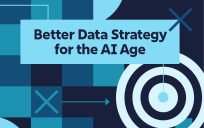In today’s digital era, government agencies depend heavily on information technology to deliver essential public services. Consequently, effective IT governance is crucial for ensuring transparency, accountability, and the secure and compliant management of public sector IT assets. IT governance serves as a framework to ensure the effective use of IT resources, encompassing policies, processes, and structures that align IT strategies with agency business and mission objectives. This alignment ensures that IT investments generate value while mitigating risks.

A poor IT governance strategy can lead to increased operational costs due to inefficiencies. These inefficiencies could put an agency at higher risk to cyber-attacks and data breaches. These issues can contribute to a loss of public trust as citizens lose confidence in government provided services.
Government agencies are typically responsible for managing a significant IT infrastructure that supports critical public services. In a zero-trust world, an agency’s IT governance team must ensure compliance, security, and efficiency across all operations. This often includes relying on time consuming manual processes and activities to generate compliance reports, audits, risk assessments, performance metrics, and security incident summaries.
Artificial intelligence can play a significant role in an IT governance process. It can enhance IT governance by streamlining the decision-making process, by automating routine tasks, and by improving risk management. AI algorithms can be used to analyze vast amounts of data very quickly and accurately, providing insights that inform strategic decisions. The potential for AI in IT governance is extensive. It can be used to improve data analysis and reporting in addition to security and risk management. AI driven data analytics can reveal trends, detect anomalies, and provide valuable insights for IT administrators.
A successful integration of AI into IT governance requires a strategic vision that aligns AI initiatives to governance objectives. This involves defining specific roles, responsibilities, and processes to ensure that all aspects of AI integration are managed effectively. It is also important that governance administrators be properly trained to leverage AI technologies effectively. This includes technical training on AI tools and methodologies in addition to training on ethical considerations and compliance requirements.
To gain additional perspectives and guidance, governance administrators should consider leveraging external expertise by collaborating with AI experts and researchers. Insights available from institutions such as Gartner can also provide valuable information for creating an AI IT Governance strategy.
Federal agencies can implement AI into IT governance frameworks by integrating various data sources into a centralized AI system or AI platform. These data sources should include network devices, automation tools, logs, security tools, compliance databases, service management platforms, and performance monitoring systems. AI models can then be trained to understand and process the data relevant to IT governance, identifying key metrics, compliance requirements, risk factors, and performance indicators.
Integrating AI into IT governance offers significant benefits. By leveraging AI’s capabilities, agencies will improve overall operational efficiency. With a strategic approach to AI integration along with comprehensive training on AI tools, federal agencies can ensure they have robust IT governance, safeguarding public trust while optimizing their IT investments.
Marcel Shaw is a seasoned technology blogger at marcelshaw.com. With over 30 years of experience as a technical consultant for top IT companies, he has extensive experience with U.S. government agencies. Marcel has provided legal expert witness services in addition to his roles as a consultant at Novell, Dell, Ivanti, ServiceNow and others. His expertise covers network/IP infrastructure, security and compliance, cloud, document management, AI, and IT Service Management. A Brigham Young University graduate, Marcel offers valuable technology insights and best practices for IT professionals.





Leave a Reply
You must be logged in to post a comment.